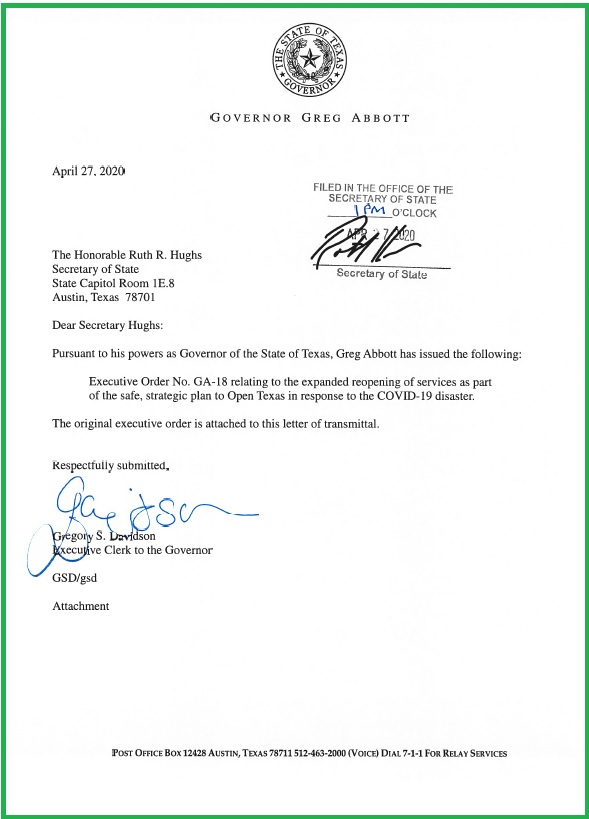Burnet County adopts tax rate, budget

By Lew K. Cohn
Managing Editor
The Highlander
Burnet County commissioners voted unanimously to adopt the same tax rate the county had last year — 0.3969, or 39.69 cents per $100 valuation — at their regular meeting at the Burnet County Courthouse on Tuesdy, Sept. 12.
Commissioners also voted unanimously to adopt a $37,634,576 budget for fiscal year 2018. The budget includes a last-minute increase of $1,400 for Veterans Service Officer Bill Worley after commissioners voted unanimously to increase his contractual pay from $13,000 to $14,400.
The 2018 tax rate includes a tax rate of .3149 or 31.49 cents for general fund expenditures; a tax rate of .0402 or 4.02 cents per $100 valuation for debt service and a tax rate of .0418 or 4.18 cents per $100 valuation for road and bridge expenditures.
“We have been able to lower the tax rate to go with the effective rate for the past couple of years, but because of unfunded mandates placed on us by the state, we will have to keep the tax rate the same as last year,” County Judge James Oakley said. “This will result in a four percent increase overall above our effective tax rate this year and it is with some heartburn that we do this.
“I feel like Burnet County and other counties and cities are in the same position of trying to fund these requirements placed upon us by the state that give us very little latitude over how we build our budget.”
The tax rate is expected to generate an additional $1,546,424 in revenue, of which $585,081 comes from new construction being taxed for the first time. That means the county will generate an extra $961,343 from its existing tax base due to an increase in property values overall.
The proposed budget includes general fund expenditures of $18,325,867, an increase of $1,082,316 more than the $17,243,551 budgeted for fiscal year 2017, as well as an increase of $2,211,334 in county jail expenditures from $8,438,933 to $10,650,267. Overall, expenditures are expected to increase $3,091,445 from $34,543,131 in fiscal year 2017 as the county will see some decreases in road and bridge funding in each of the four road and bridge precincts.
Oakley has previously said the county has found itself hamstrung by a number of unfunded mandates placed on it by the Texas Legislature, especially with the passage of Senate Bill 1913, which “limits the county's ability to collect fines and fees,” Oakley said.
Senate Bill 1913, which went into effect Sept. 1, claims to give judges more flexibility in setting lower fines for people who commit certain fine-only offenses, such as failing to pay a parking or speeding ticket. Judges would also be required to evaluate whether a person has the ability to pay a fine and the bill would then give judges discretion to allow offenders to pay fines in increments or through community service. It also would stop counties from requiring jail time in lieu of payment for offenders who cannot pay fines.
“This is going to create a $326,000 drop in revenue for the county right off the bat,” Oakley said. “It is seriously going to limit our ability to collect fines and fees.”
Oakley said the county also has seen a nine-percent increase in health insurance premiums for county employees, which should add up to an extra $276,000 in cost to the county. Last year, the county had to budget for a five-percent increase in costs, meaning this new increase is expected to be nearly double what the county saw in fiscal year 2017.
The county also has agreed to give all employees a two-percent cost of living adjustment, which Oakley said is primarily being given to help county employees pay for increases to their health insurance premiums for their dependents.
Another increase of $97,000 in expenditures is budgeted for inmate mental health at the Burnet County Jail in wake of Senate Bill 1849, also called the Sandra Bland Act, which forces county jails to divert people with mental health and substance abuse issues into treatment programs and opens up release on a personal bond to individuals suffering from mental illness or an intellectual disability.
Bland, a 28-year-old from Illinois, died in the Waller County Jail in 2015 following a traffic stop in a case which made national headlines as an example of someone suffering from mental illness being mistreated by law enforcement.
Oakley said the county also has taken the step of budgeting an additional $75,000 in anticipation of an increase in court-appointed attorney fees. The county has seen an increase in expenditures every year for a while in this area and the majority of cases in which court-appointed attorneys are needed involved Child Protective Services.






